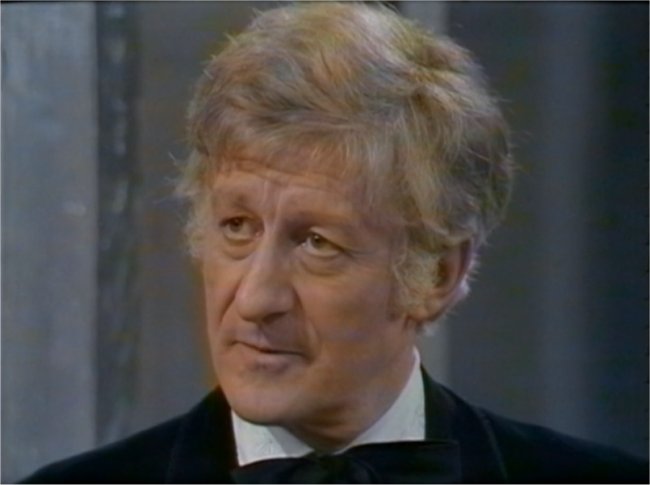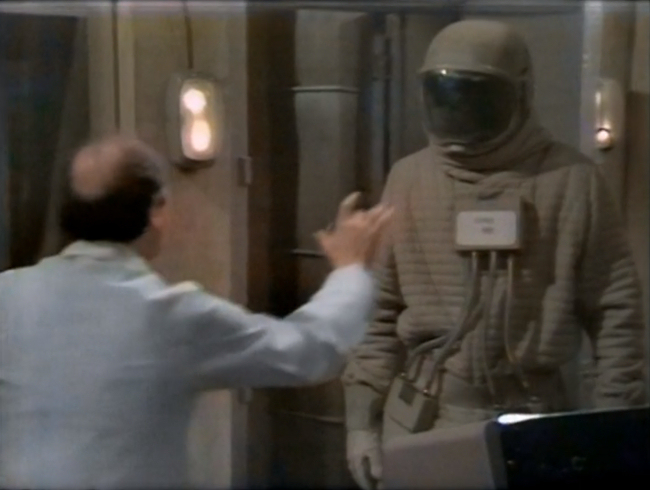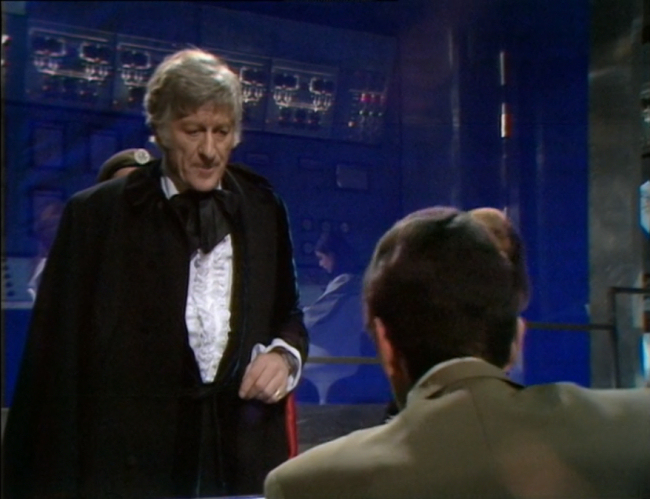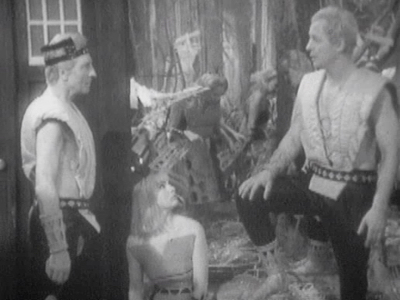
Still in a Third Doctor mood, I last week watched The Mutants, a Doctor Who serial from 1972. It'd been quite some time since I last watched it and I think I enjoyed it more this time. Probably Three's most controversial serial, it deals with issues of colonisation and the harmful exploitation of a native population.

Salman Rushdie may or may not have had the serial specifically in mind when he referred to Doctor Who in The Satanic Verses;
It seemed to him, as he idled across the channels, that the box was full of freaks: there were mutants - 'Mutts' - on Dr Who, bizarre creatures who appeared to have been crossbred with different types of industrial machinery: forage harvesters, grabbers, donkeys, jackhammers, saws, and whose cruel priest-chieftains were called Mutilasians
Aside from the term "Mutts", though, this description doesn't fit The Mutants or any other specific Doctor Who episode, instead being part of the general, exhaustingly sarcastic, impressionistic tirade that characterises the book. It's the kind of vague stab in the dark Rushdie often makes to establish his feelings on a topic he doesn't seem to have formed a coherent argument about (I'm not a big fan of the book). There's nothing called a "Mutilasian" in The Mutants but the plot involves mutations among a humanoid species which seem to have resulted from tampering with the ecosystem by "Overlords" from Earth.

This was still during the period when the Third Doctor (Jon Pertwee) was exiled on (more or less) contemporary Earth but it was late in that period and he was starting to make a few trips in the TARDIS again courtesy of the Time Lords who allowed him to travel now and then to carry out specific missions. In this case, the Time Lords also send him a hard green egg.

So he and Jo (Katy Manning) travel to the future and the distant space station orbiting Solos, the alien world, to try to find the one person for whom the egg will open. In charge of the space station is a man referred to as the Marshal (Paul Whitsun-Jones), a standard authoritative madman. But I like to think his cruelty is born of his efforts to keep himself insensible of what's occurring on the planet.

The Solonians are turning into giant killer crustaceans, mutants, referred to by the Marshal as "Mutts" with the quality of a racial slur. I'm reminded of Things Fall Apart or other stories about the experience of a colonised population and the particular difficulties faced by individuals who have one foot in the indigenous culture and another in that of the coloniser. This seems to be the intended metaphor for about half the serial until the Doctor, running for his life (as usual) on the planet runs into a scientist named Sondergaard (John Hollis--Lando's bald assistant from Empire Strikes Back).

Presumed dead by the Overlords, Sondergaard has secretly been researching the mutants and together he and the Doctor discover that the mutations are actually part of a natural cycle which the Overlords have prematurely triggered. So much for allegory. Unless what the story is really talking about is something closer to the idea behind the Prime Directive on Star Trek--how it's important to allow civilisations to advance technologically at their own pace. Here, the disruption takes on a physical manifestation.

In another thing reminiscent of Star Trek, the Earth humans are noticeably made up of a diversity of races--among the guards are several black men and there's even an East Asian man at the end. This was long before the quota policy the BBC has to-day so this was likely a deliberate attempt to show an Earth advanced beyond its racial and ethnic divisions. Even so, all the principals are played by white actors except for one of the guards who changes sides to help the Doctor and Jo, a black man named Cotton. He's played by an actor named Rick James--no, not the one you're thinking of--whose career as an actor was short lived. Which may have something to do with the fact that he wasn't very good at it--his performance justly received bad reviews. It seems like it's only been in recent years that British television has had a sizeable enough pool of black actors for casting directors to be discerning but even now there are only so many of the calibre of Idris Elba and Pearl Mackie. To meet quotas, Doctor Who still often has to settle for the likes of Tosin Cole or Samuel Anderson (though, to be fair, Bradley Walsh is also terrible). But the black population of the UK is up to three percent--with over a million in London--so it's at least easier to find good black actors than it was in the 70s.

The best parts of The Mutants are scenes where the Doctor is working with another scientist--Sondergaard on the planet and a guy named Jaeger on the station, whom the Doctor amusingly outwits a few times. Jaeger's played by Czechoslovak actor George Pravda who would later appear in the Fourth Doctor serial The Deadly Assassin. His thick accent does nothing to diminish his entertaining performance as a surprisingly complex character. He's masterminding the project that's ruining Solos but he's clearly unhappy with it and is continually frustrated by the Marshal's demands. There's a sense of respect between he and the Doctor even though it's kind of fun seeing the Doctor make a complete jackass out of him.
Twitter Sonnet #1261
A standing bow adorns the copper keep.
Oppressive fluff obscures the nasal flow.
Through flower buds the sleeping humans creep.
Surrounding shapes emit a pretty glow.
Behind the traded glass a story changed.
Reclaiming sets from yellow dust, a ghost.
Behind the fresher eyes the spirit ranged.
A painted screen provides a welcome host.
A liquid sheet of falling metal rained.
Absorbed in cloudy streets the sky descends.
Assertive steps presage the walking stained.
Receptive moulds incite aggressive bends.
Galactic fingers point to times of night.
Octagonal resorts endorse the light.















